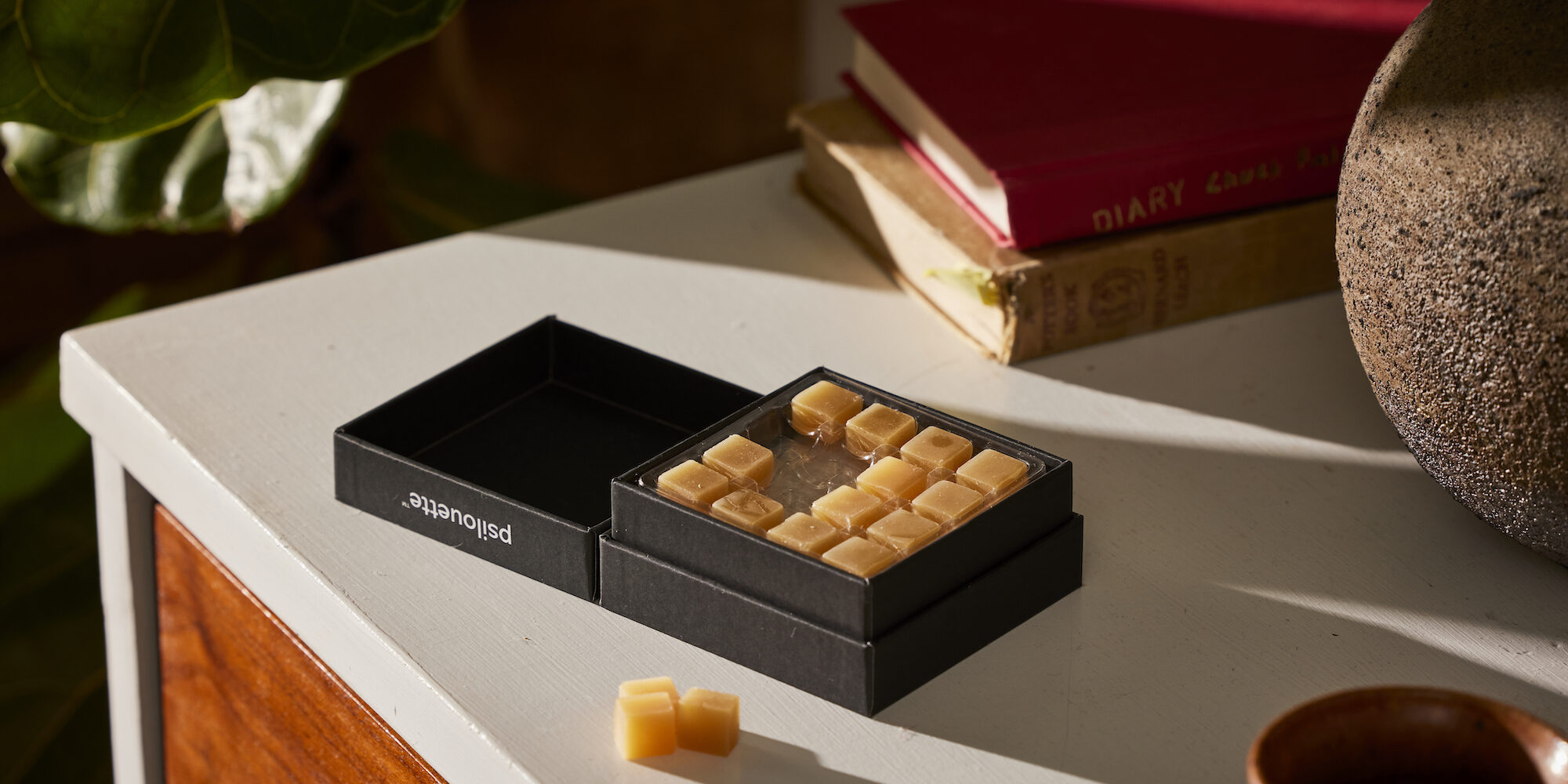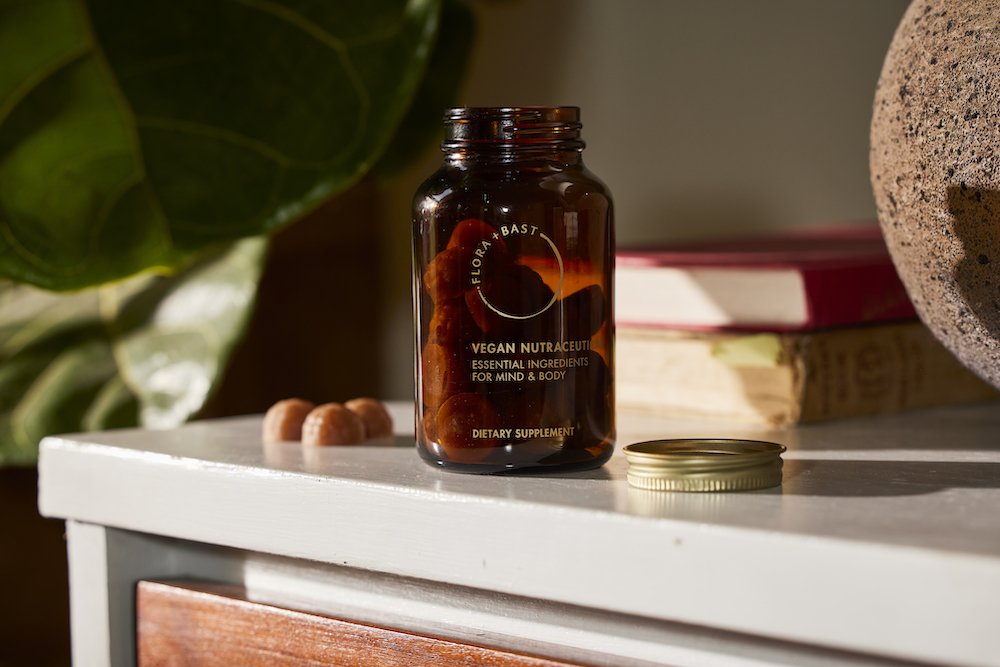
Flora + Bast And Psilouette Founder Derek Chase Is Building The Deciem Of Drugs
“It’s risky, but we believe the risk is worth it,” says Derek Chase.
The founder of Flora + Bast, where he’s been navigating the murky legal waters of CBD-infused beauty and wellness products for the past five years, understands risky business well. And he better because he’s getting riskier by entering another stigmatized category, psilocybin.
Chase has launched Psilouette, a maker of gummy supplements that mostly contain varying microdoses of psilocybin. Psiloutte’s products are priced from $40 to $100, depending on dosage. The brand’s non-psilocybin products include $50 Sleep Tight, a mix of amanita muscaria and reishi, and $50 Lion’s Mane Brain Stack, which has lion’s mane fruiting body extract and alpha-GPC, a substance purported to enhance the neurotransmitters responsible for learning and memory.
Professionally, Chase fell into the mushroom gummy game about two years ago when he found a manufacturing partner to produce CBD gummies for Flora + Bast. Amid the pandemic, he says he “pretty quickly realized, to keep everybody employed, we’ve got to take on other business. So, I started taking on white-label clients, and I was pretty open to what I would do.” His openness led him to taking on a white-label client with a black market “magic” mushroom brand.
Personally, his mushroom history predates the pandemic. Chase, who spent five years working at L’Oréal and three years working at Johnson & Johnson, had therapeutic dalliances with psychedelic mushrooms when he was at Kiehl’s Since 1851. He says, “I was trying to release myself from the corporate grind and trying to quit that job and utilized mushrooms to do so.”
Chase began concocting his own gummies at the time and giving them out to people. He became so serious about his gummy endeavor that he came up with the name Psilouette for it, trademarked the name and secured a URL for it.

Through his experience with Flora + Bast, Chase understood the importance of proper dosing and testing, which is rare in mushroom black market ingestibles, and Psilouette’s formulas are tested to inform the development process. About a year ago, Chase initiated talks with public relations people to feel out their thoughts on launching a product that’s technically illegal in most states as well as on the federal level. Three months later, he struck up conversations with editors about Psilouette. It was off to the races from there.
“After the first month, people were dying to talk. We got a mention in The Cut. All of a sudden, we had like $20,000 in orders,” says Chase, who estimates he’s spent approximately $80,000 on Psilouette thus far. “I didn’t even have that much inventory. It was a mess trying to get those orders fulfilled, but it gave us the capital to actually create the brand.”
Interacting with the influx of new customers was a crash course in how to create magic mushroom products for the masses, including how to present the product as a mental healthcare tool, not just an inebriation-inducing, escapist-style drug. Psilouette kicked off customer consultations to provide guidance. It chose to keep branding simple, but stylish, with black boxes featuring sparse white wording so as to “not infer anything,” says Chase. “Anything you infer through your brand is going to affect the psychedelic experience, so we try to be as in the background as possible.”
Chase enthusiastically gives out as much free product as possible. Because Psilouette’s psilocybin products are illegal, the brand doesn’t process orders on its website in a traditional e-commerce manner. Customers placing an order enter their email and are sent an invoice with a suggested donation amount. Psilouette ships the product regardless of whether the invoice is paid, but Chase says between 85% and 90% of people end up paying.
Psilouette does no marketing, and Chase says it’s “very profitable. We don’t worry if people can’t afford it, if people don’t want to pay…At this point, it’s still very margin accretive. Plus, if they have a good experience, they’re going to want to come back, and they’re going to want to pay, at least that’s my thought.”

Of course, Chase is keeping close tabs on the constantly shifting legal landscape for both cannabis and psilocybin. Like many industry insiders, Chase believes that federal legislation for the latter may progress faster than the former due to longstanding stigma around cannabis use along with the mental health benefits of psychedelic-assisted therapy being proven by study after study.
“Psilocybin is what people are looking at as the most therapeutic psychedelic at the moment,” says Chase. “That’s another reason why we pushed mushrooms because everybody’s ready for it. There isn’t resistance. It’s been very interesting as we’ve had hundreds of consultations now to understand what people’s expectations are going in as well as the therapeutic benefits coming out. It’s really encouraging to see how people are responding.”
In terms of psilocybin’s legality state to state, it will be legal in Oregon in January, and companies will be able to apply for licenses to operate in the state. Flora + Bast has a facility and mycologist just outside of Portland. After Oregon, Chase figures Colorado is about two years out from having a legal market, and Washington will probably be next. Chase isn’t clamoring for federal legalization because he says psilocybin being illegal erects a barrier that large corporations “only in it for the money” aren’t interested in crossing.
Psilouette’s psilocybin business may seem like a far cry from large corporations like Chase’s former employers L’Oréal and Johnson & Johnson, but he looks to Deciem, a company now owned by a large corporation, Estée Lauder, for inspiration. He’s out to introduce a series of brands revolving around plant ingredients like hemp and mushrooms.
“One brand can’t do it all, so I imagine there to be, by the time I’m done, five to 10 brands. My goal is to develop an ecosystem of brands,” says Chase. “Specificity is important, so being able to create beautiful brands around a specific thing for me is a better mousetrap than trying to do one brand that does everything. I see that as a great strategy for growth.”





Leave a Reply
You must be logged in to post a comment.